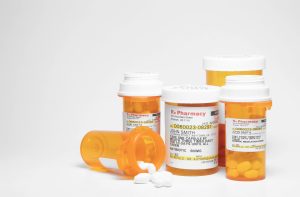Most patients in detox or going through addiction treatment receive medication. Whether it is specific FDA-approved medication to help with drug or alcohol withdrawal symptoms while in detox, Medication-Assisted Treatment (MAT) medication like Suboxone or Vivitrol for opioid use disorder, or psychotropic medications for mental health conditions taken while in a short-term residential or long-term extended care addiction treatment program, most patients have some form of medication that they take regularly while in rehab. Under the watchful eye and management of a psychiatrist or psychiatric nurse practitioner, medication prescribed by a professional can be a vital piece of the recovery puzzle for many patients. Unfortunately, medication non-compliance is a regular patient issue that happens while in drug treatment or rehab.

First, it is important to recognize the importance of taking medication as prescribed by a doctor or healthcare professional. Medication is used specifically to treat certain symptoms that otherwise could not or would not be managed by medication. There are many risks for patients associated with not following the medication instructions or protocols provided by the doctor or healthcare professional. Some of a most common risks of not taking medication as prescribed can include:
- Worsening of the physical or mental health condition
- The prescribed medication may not work as intended
- Relapse
- Overdose
- The worsening of symptoms or making symptoms harder or more difficult to treat
- Developing additional health issues
- The need to inevitably take more prescriptions
- Unintended side effects
Patients suffering from addiction and mental health disorders often don’t like to take medications. Sometimes it is because of stigma, embarrassment, or shame. Sometimes it is because they feel judged by peers or others in the patient community. Sometimes it is because they begin to feel better on the medication, and then believe they no longer need it. Sometimes it is because of the side effects they experience from the medication, which may treat a larger issue but have lesser side effects. There are many reasons patients are not medication compliant or why they don’t take their medications as prescribed. Here are some of the major reasons:
- Side effects. Some patients complain that certain medications make them drowsy, incoherent, “foggy” or impact their daily functioning
- Not wanting to get better or wanting to use drugs or alcohol
- Fear of the medication, the side effects, or of the unknown
- Shame, embarrassment, stigma, or judgement
- Cost
- Misunderstanding of the medication, it’s intended use, or of the potential side effects
- Overwhelmed by the number of medications they may be prescribed
- Mistrust of the doctor, nurse, or healthcare provider prescribing the medication
- Worry or concern of dependence
It is important to note how vital it is that patients take their medication in rehab as prescribed. Certain medications, like those used in MAT for opioids or alcohol, help to stop cravings or inhibit the effects of drugs, therefore helping to prevent relapse or the thought of relapse. Some psychiatric medications take days or months to become effective, and not taking the medication as prescribed will inhibit the positive impact of the medication. Additionally, for many medications used in drug and alcohol rehab, the sudden stopping of medication can be dangerous, leave patients vulnerable, or even cause withdrawal symptoms.
A patient enters detox, rehab, or an addiction treatment center to seek professional help and guidance to overcome their substance use disorder and get their mental health on track. Often, this requires the use of medication. Therefore, it is important to remember that taking prescribed medication as it is prescribed is meant to help and support patients in overcoming their addiction and mental health issues. Some medications will help them stabilize physically, while other medications will help them stabilize mentally and emotionally, allowing them to get down to the underlying causes and conditions driving the addiction in the first place. It is important to have conversations with the prescribing psychiatrist, doctor, or nurse to better understand the medication, what it is being used to treat, how it works, what are the potential side effects, and then trust the medical prescribed. A good psychiatrist, doctor, or nurse will regularly discuss a patient’s medication protocol with them and how it is working, and continually examine and reexamine it in discussions with the patient while they are going through treatment, in order to make sure the patient is getting the full amount of effect and support from the medication, and in doing so, the full effect and support in detox and treatment to overcome addition and find recovery.
If you or someone you know needs help with addiction or co-occurring disorders, please give us a call. Innovo Detox offers the latest in evidence-based medical, psychiatric, and clinical care for those in need of detox and medical stabilization in Pennsylvania and the surrounding Mid-Atlantic area. If we aren’t the best fit for you or a loved one, we will take the necessary time to work with you to find a detox, rehab, treatment center or provider that better fits your needs. Please give us a call at (717) 619-3260 or email our team at info@innovodetox.com. For more information on our company or services, please visit our website at www.innovodetox.com.
